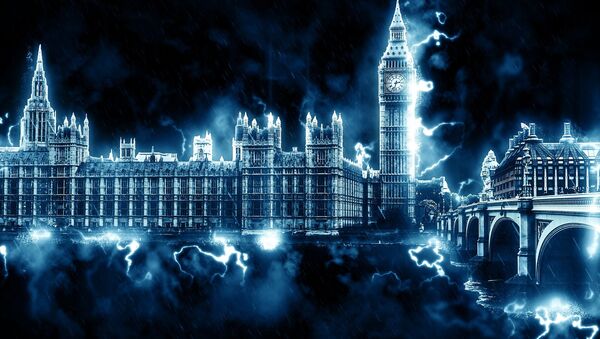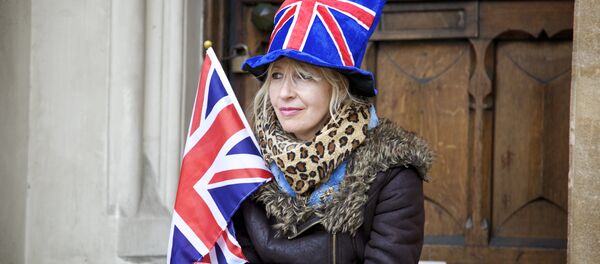LONDON (Sputnik) — According to the latest Survation poll, Labout has gone from 30.2 percent of potential votes in early May to 40.4 percent in the poll published on Monday, bringing the Conservative lead to 1.1 percent.
"It feels from the gossips to me like the famous election we had in 1992, where all the opinion polls showed the Labour party was going to win, and on the doorsteps when we were canvassing it felt as if the Labour was going to win, but then the Conservatives won. I have the same feeling," Lilley said.
In 1992, the Conservatives won 42.2 percent of the votes and 376 seats, while Labour received 30.8 percent of the votes and 229 seats.
"In 1992, when a conservative candidate asked at doorsteps if he or she ‘can count on your support,’ people didn’t say no. What they meant was that they are very angry with the Conservative party, but they are particularly angry because they know they are going to have to vote for Conservatives, because the other side is even worse … But then when you encourage people to keep talking, they eventually say ‘well, but I suppose I will vote Conservatives,’" Lilley added.
Recent attacks in the United Kingdom prompted criticism of Prime Minister Theresa May over her policy of police cuts at the time when she served as Home Secretary. London was hit in March and in June, and the city of Manchester was targeted in May. The two most recent attacks took place in the country after the prime minister had already announced the early election.
"People are obviously shocked, but I don’t think the attacks will influence many votes. Normally when there is a crisis like that people want strong government. That would help Theresa May. … She has been hinting that we may bring back measures that used to exist which did give the police the opportunity to monitor and even restrict the movement of extremists. But I don’t think it’s because she is being criticized, rather because those problems have emerged," Lilley said.
Last week, the YouGov pollster estimated that the Conservatives who held 330 seats in the latest parliament composition could lose about 20 seats, and thus their majority, for which they would need at least 326 seats. The model, however, showed a significant margin of error, allowing broad variations between different scenarios.
UK Election on Thursday Can Bring Back Bipartisan Parliament
Snap general election on Thursday may bring the United Kingdom back to the old times of having a bipartisan parliament, divided between the Conservatives and the Labour, as the Liberal Democrats and UK Independence Party (UKIP) are losing support, Lilley told Sputnik.
"An interesting thing that is happening now is that both UKIP and the Lib Dems are collapsing their support. Most of the Lib Dem vote will go Labour, and most of the UKIP vote will go Conservative. In these circumstances, it’s just very hard for the polls to work out what it’s going to be like," Lilley said.
"They are losing support because the UKIP existed to get a referendum [on Brexit] and to win it. They got it, so people can no longer see what’s the point of the party now, because May is going to negotiate strongly for Brexit… The Lib Dems, we thought, would do well. We thought they would be the only party opposing Brexit, and the diehard opponents to Brexit would support them. But people are just thinking it’s the past, and you cannot try to change it if this is a decision. … So those who do not support Brexit would just vote Labour," Lilley said.
"The Labour share will rise compared to the last time, because they will get some of the Liberal vote. But it won’t rise as much as the Conservative share of vote. So instead of the vote being divided among the 4 parties, it will be the vote divided between 2 parties. Which means going back to the old times of having just 2 major parties in the parliament," he added.





